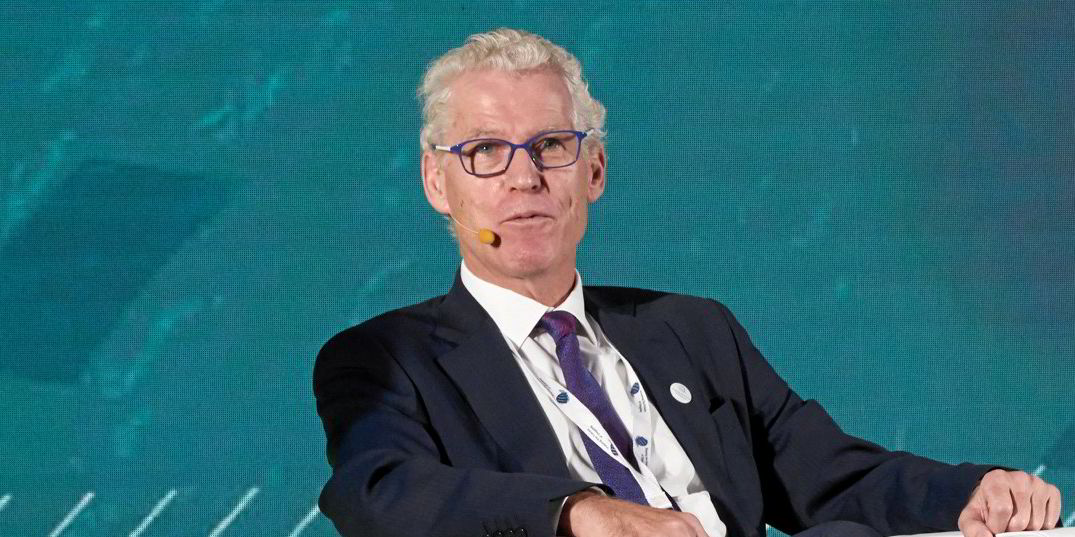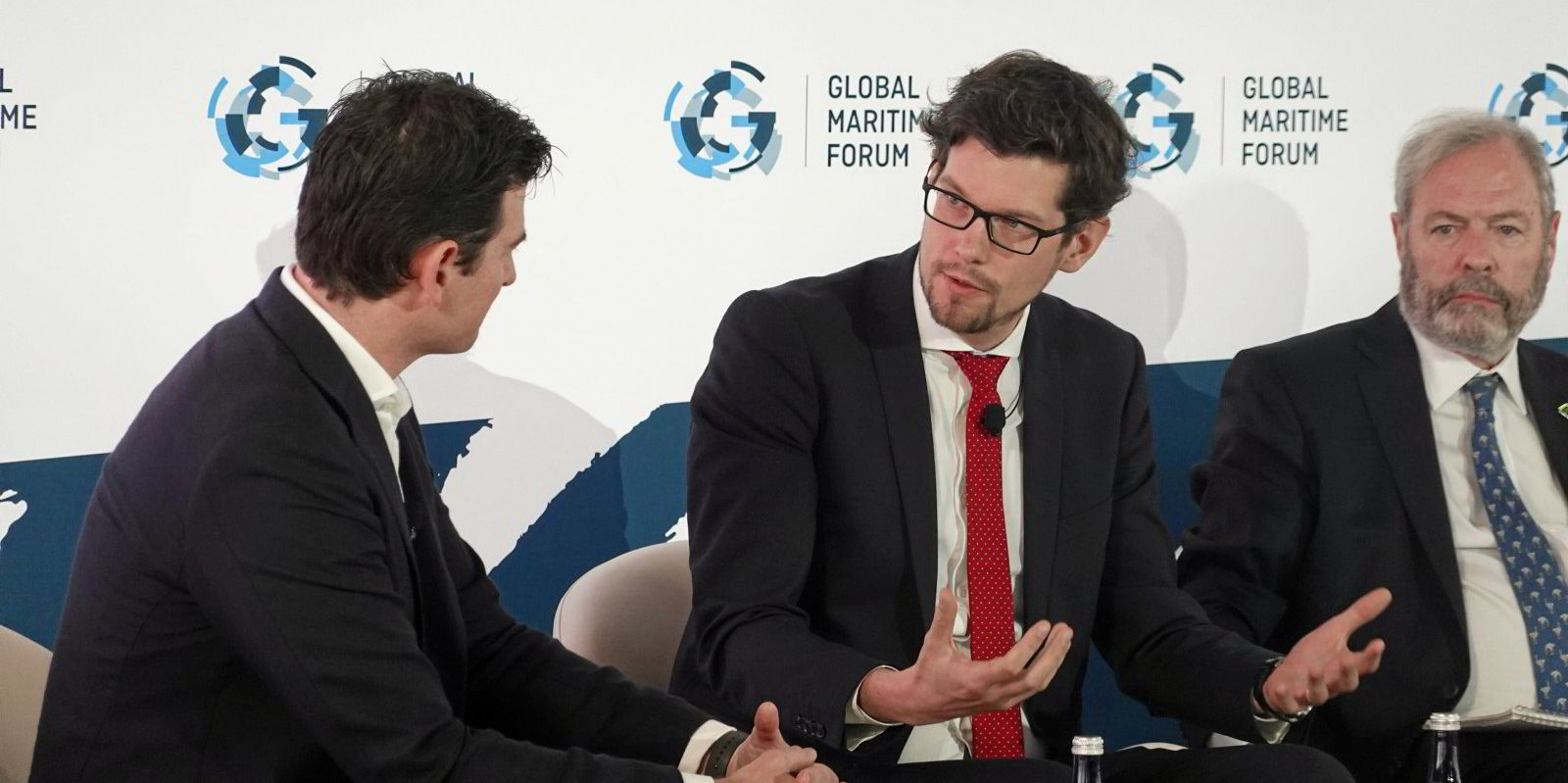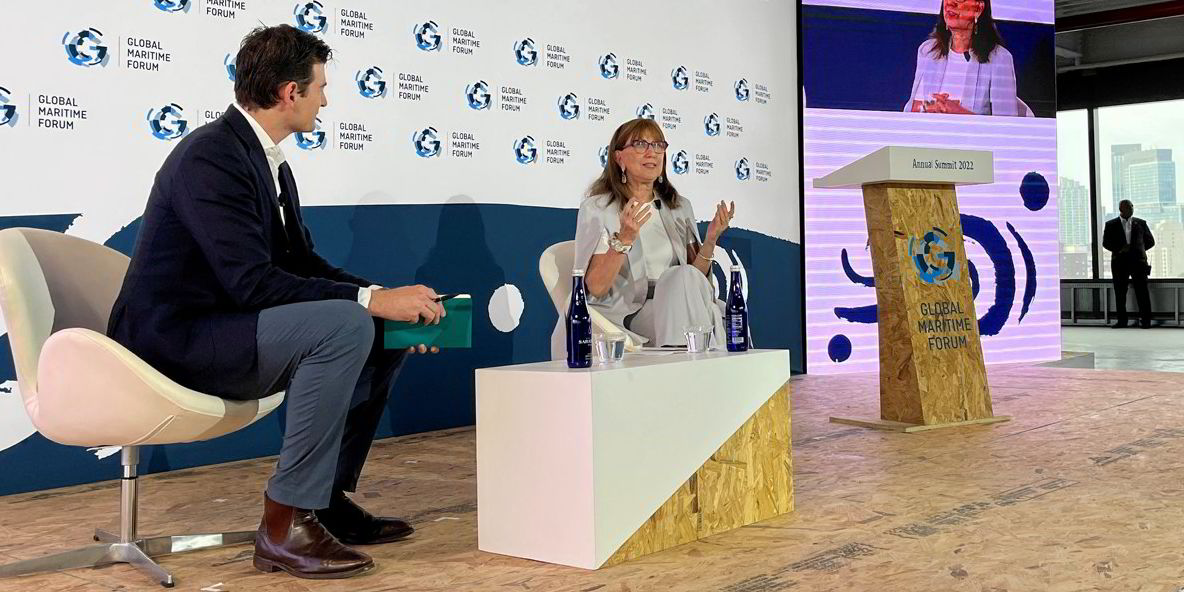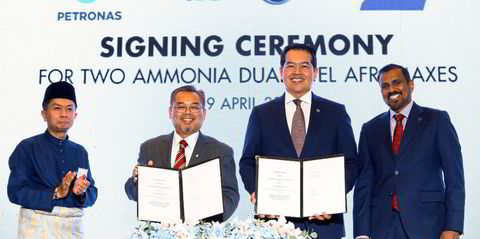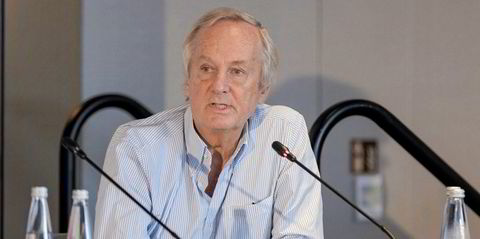It could be years before the International Maritime Organization implements measures that would shrink the price between fuel oil and alternative fuels, and that could make it hard for shipping companies to make investment decisions.
That was the warning from Ocean Network Express chief executive Jeremy Nixon at the Global Maritime Forum’s annual summit in New York, where he said market-based measures like a carbon tax are needed to make conventional fuels more expensive relative to low-emission alternatives.
“As an industry, we can do a certain amount of pioneering there, but we cannot move to big scale unless there’s some levelling up,” said Nixon, who is also co-chairman of container shipping industry group World Shipping Council (WSC).
“So we need the fuel costs to come up to [be] in line with the new fuel types, so market-based measures are critical.”
But Nixon pointed to upcoming discussions at the IMO’s Marine Environment Protection Committee (MEPC) about market-based measures. Among those under discussion are a carbon levy and an emissions trading scheme.
“But if we’re not careful, it’s going to take one or two years for that to come to some kind of conclusion. And it will take probably one or two years after that to actually start to implement those proposals,” he said.
“So here we are in 2022. If we don’t get clarity until 2024, and implementation to 2026, that’s a long runway of four years for us as an industry.”
That means boards of directors have to guess at the path ahead when they make decisions. Much more clarity on the market-based measures is needed, he said.
“We need to make real progress at MEPC 79 in December, in clarifying and coming up with some type of market-based measures,” Nixon said.
Those measures should be transparent, understandable, predictable and universal, he added.
ONE is a Singapore-based container liner operator made up of Japanese shipping giants NYK Line, Mitsui OSK Line and K Line.
Its chief executive said the shipping industry also needs to focus on the supply of hydrogen-based green fuels.
But he said if it is left to energy companies alone to deliver green hydrogen to make zero-carbon fuels, such as ammonia and methanol, the effort will fall short.
“We need to be sure that the green hydrogen is coming so that we can create these decarb fuels, which will then allow us to be able to move forward,” he said.
